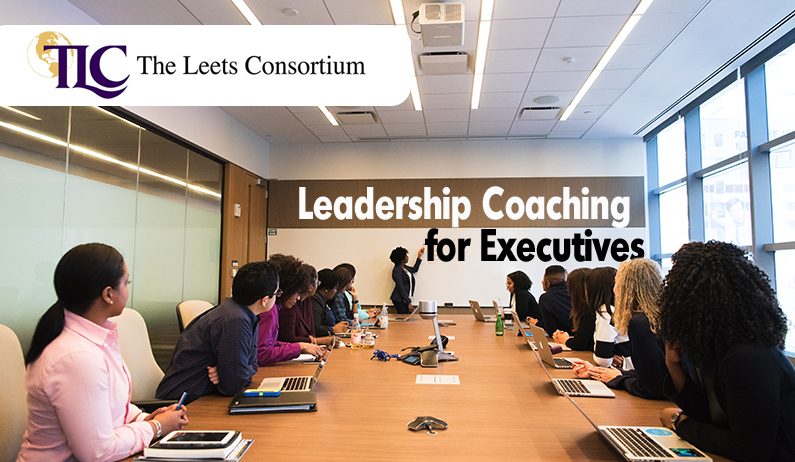Understanding Leadership Coaching for Executives
Coaching, Executives | Apr 5, 2021
Effective leadership is a vital component in carrying your organization forward and yet many organizations do not believe their current leaders have the skills and inspiration to drive the organization toward a more successful future.
Leadership coaching is a popular and effective method of improving executives effectiveness in leadership roles by motivating and inspiring, giving clarity as to their goals and vision, and building leadership capabilities in tangible and measurable ways.
Individual coaching for leaders can have a dramatic effect on leadership style resulting in improved employee engagement and the ability to build teams that are motivated and effective at achieving outcomes and exceeding expectations. The coaching process not only builds leadership skills, developing more inspiring leaders but can also filter down from executive levels to have a positive effect on a company’s culture further increasing the return on investment.
What is Leadership Coaching?
Leadership coaching can be internal or external coaching focused on leadership development. There are many types of coaches both personal and professional, and executive coaches will often work with senior executives to develop coaching and leadership skills either as a primary focus or alongside other objectives.
Leadership coaching engagements may be utilized to support leadership transitions as teams develop or to provide ongoing development opportunities and a sounding board to senior leaders.
Coaching relationships are built on confidentiality and trust many executives who have received coaching not only report increased productivity and effectiveness in their role but also better emotional intelligence and relationship management that can be utilized in all areas of life.
One-to-One Leadership Coaching
After an initial consultation to ensure a good fit, one-to-one coaching engagements will start with a thorough 360-degree assessment followed by a process of clarification to lay out the goals and objectives of the coaching and leadership skills either exclusively or alongside other objectives.
Coaching sessions will then focus on keeping executives accountable to their set goals and development plan with an emphasis on organizational effectiveness, building emotional intelligence, and improving relationship management. An executive coach can be the first point of call when challenges arise acting as a sounding board helping executives expand their thinking and deal with any limitations or negative beliefs.
Coaching is about unlocking an executive or leader’s potential to maximize performance within the organization both at an individual level and through more effective leadership and performance management.
Coaches are often former executives themselves and experts in their fields meaning they have a great understanding of potential pathways to success and may provide advice as well as effective leadership skills and tools.
The Leets Consortium Leader’s Leverage Talent Development Program
The Leets Consortium (TLC) Leader’s Leverage Talent Development Program is designed for mid to executive level leaders, enabling companies and organizations to develop their next-generation leaders in a powerful and innovative way.
The program provides a powerful combination of one-to-one and group coaching sessions over a six month period with an emphasis on sustainable behavioral change, practical problem-solving in real-world situations alongside self-reflection and feedback from both coach and peers. Each individual and group coaching session has a specific focus to move participants through the program.
HR professionals in charge of talent management can choose this style of leadership development to support an emerging leader and build talent within their organization.
Key Benefits of Leadership Coaching for Executives
1. Creating More Self-Aware and Aligned Leaders
One of the key benefits of executive coaching including leadership coaching is the increase in self-awareness that comes from working in a reflective space. Coaching training focuses on enabling coaches clients to fully access their potential by becoming aware of both strengths and limitations and thinking more strategically to come up with creative solutions.
A common side effect of better self-awareness and self-regulation is that leaders become better at sharing responsibility, delegating tasks more effectively and sharing praise and recognition resulting in better performance management and team assessment.
2. Clearer and More Defined Objectives
Executives are able to clarify their objectives and set goals that are more aligned with both individual and company values. Leaders that are fully aligned with their goals both personally and professionally are better able to motivate their teams and are better equipped to deal with any issues that arise.
3. Return on investment
The return on investment of leadership coaching can be seen in a number of ways including employee retention and increased profits. Coached leaders are not only more likely to stay within the organization, but their improved leadership style results in more motivated and productive teams.
HR professionals report increased employee engagement as a result of including leadership coaching in their talent management programs. And it has been shown that an emerging leader who receives leadership coaching will improve their leadership capabilities and build more effective high-performance teams.
4. Building a Coaching Culture
Coaching leaders can also be a great first step in creating a coaching culture within an organization. Changing management and communication style within an organization to be more coaching in nature results in improved performance across the board, maximizing individual potential and effectively delivering results.
Executive leadership coaching can be combined with in house coaching training and coaching certification giving an organization unlimited access to certified coaches. One potential model that might be used is the Grow Model of coaching.
The Grow Model of Coaching
The Grow Model is a simple and powerful 4 step results-focused model that can be used for coaching and mentoring sessions within teams and organizations.
Grow stands for:
- Goal
- Current Reality
- Options (or Obstacles)
- and Will (or Way Forward)
Ready to learn more about executive leadership coaching? Let’s talk! We’d love to give you an assessment free of charge – call (949) 260-0300.
Subscribe to our Newsletter:
Receive leadership and professional development insights straight to your inbox
How can we support your success?
We’d love to get to know you and learn more about your organization’s leadership development initiatives.


